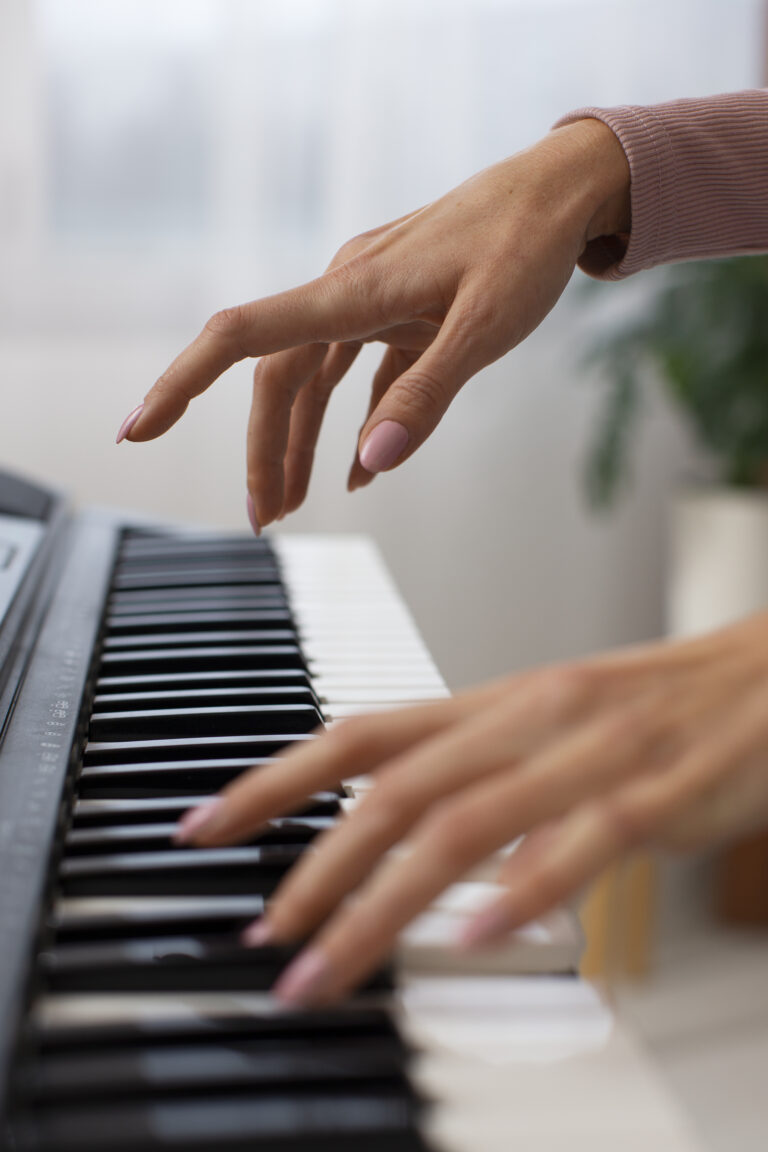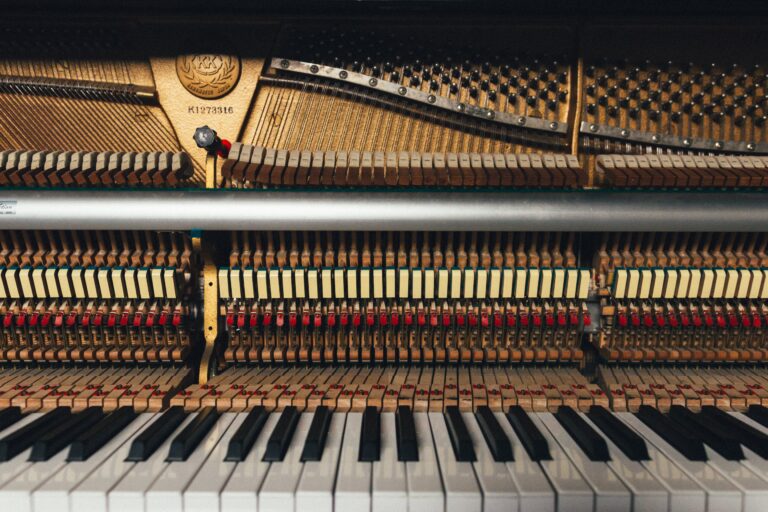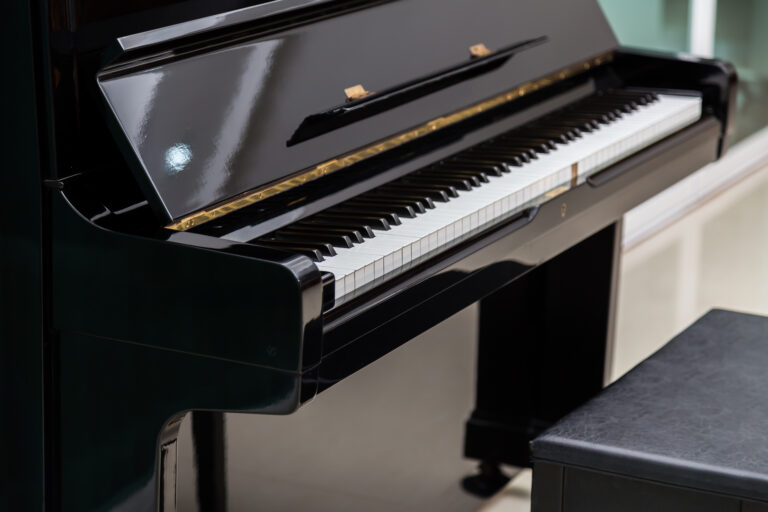Playing Your Way to Happiness: The Benefits of Piano for Those with Depression
If you’re someone who struggles with depression, you may be looking for ways to alleviate your symptoms. While there are many traditional treatments available, such as therapy and medication, you may be wondering if there are any alternative methods that could help. One such method that has gained popularity in recent years is playing the piano.
Music has long been known to have a positive impact on mental health, with studies showing that it can reduce anxiety and depression symptoms. But does playing a musical instrument, such as the piano, have the same effect? In this article, we’ll explore the relationship between piano playing and depression, and look at the scientific evidence behind it. We’ll also provide tips on how to get started playing the piano, even if you’re a beginner. So if you’re ready to discover a new way to manage your depression symptoms and improve your mental health, keep reading to learn more about the power of piano-playing.
Key Takeaways
- Playing the piano may have a positive impact on depression symptoms.
- Music has been shown to reduce anxiety and depression symptoms.
- Scientific evidence supports the use of music as a form of therapy for mental health.
Understanding Depression
Depression is a common mental health disorder that affects millions of people worldwide. It is characterized by feelings of sadness, hopelessness, and a loss of interest in activities that were once enjoyable. Depression can also cause physical symptoms such as fatigue, changes in appetite and sleep patterns, and difficulty concentrating.
Depression is not a sign of weakness, and it is not something that you can simply “snap out of.” It is a real illness that requires treatment. There are many different types of depression, and each person’s experience with the disorder is unique.
Some common types of depression include:
- Major depressive disorder
- Persistent depressive disorder
- Seasonal affective disorder
- Postpartum depression
Depression can be caused by a variety of factors, including genetics, brain chemistry, life events, and other medical conditions. It is important to seek help if you are experiencing symptoms of depression, as it can have a significant impact on your quality of life and overall health.
If you are struggling with depression, know that you are not alone. There are many effective treatments available, including therapy, medication, and lifestyle changes. With the right support and treatment, you can manage your symptoms and improve your overall well-being.
The Power of Music
Music has been shown to have a powerful effect on the brain and emotions. It can evoke memories, enhance mood, and reduce stress. When it comes to depression, music can be a valuable tool for coping and healing.
Research has shown that listening to music can activate the brain’s reward system, releasing feel-good chemicals like dopamine and serotonin. This can help improve mood and reduce symptoms of depression. In fact, studies have found that music therapy can be an effective treatment for depression, anxiety, and other mental health conditions.
Playing an instrument, such as the piano, can also have a positive impact on mental health. Learning a new skill can boost self-esteem and provide a sense of accomplishment. Playing music can also be a form of self-expression and a way to release emotions.
In addition to its emotional benefits, playing the piano can also have physical benefits. It can improve hand-eye coordination, fine motor skills, and even cognitive function. This can be especially beneficial for older adults who may be at risk for cognitive decline.
Overall, the power of music should not be underestimated when it comes to mental health. Whether you’re listening to your favourite songs or playing an instrument, music can be a powerful tool for improving mood and reducing symptoms of depression.
Piano and Depression
If you are someone who is struggling with depression, you may be looking for ways to improve your mental health. One activity that you may consider is playing the piano. Here are a few reasons why piano playing may be helpful for those with depression.
The Healing Sound
Music has been shown to have a positive effect on mental health, and playing the piano is no exception. The sound of the piano can be soothing and calming, which can help to reduce feelings of anxiety and stress. Additionally, playing music can release endorphins, which are natural chemicals in the brain that can help to improve mood.

Cognitive Benefits
Playing the piano requires a significant amount of focus and concentration, which can be helpful for those with depression. When you are playing the piano, you are able to take your mind off of negative thoughts and instead focus on the music. Additionally, playing the piano can help to improve cognitive function, including memory and problem-solving skills.
The piano can be a powerful tool for those struggling with depression. Its calming sound and ability to release endorphins can improve mood, while the focus and concentration required to play can provide a much-needed respite from negative thoughts. So, if you’re looking for a way to lift your spirits and find peace in the midst of depression, consider turning to the piano and let its music guide you towards healing.
Scientific Evidence
Research studies have shown that playing the piano can have a positive impact on mental health, including depression. Here are some key findings:
- A study published in the International Journal of Music Education found that piano playing can improve mood and reduce stress levels. The study involved 50 participants who were randomly assigned to either a piano group or a control group. The piano group showed significant improvements in mood and stress levels after just four weeks of playing.
- Another study published in the Journal of Music Therapy found that piano playing can reduce symptoms of depression in older adults. The study involved 60 participants who were randomly assigned to a piano group or a control group. The piano group showed significant reductions in depression symptoms after just six weeks of playing.
- A meta-analysis of several studies on music therapy found that piano playing can have a positive impact on mental health outcomes, including depression. The analysis found that music therapy can improve mood, reduce anxiety, and improve the overall quality of life.
Overall, the scientific evidence suggests that playing the piano can be a helpful tool for managing depression and improving mental health. While more research is needed to fully understand the mechanisms behind these benefits, incorporating piano playing into a comprehensive treatment plan may be a worthwhile consideration.
How to Start Playing the Piano
If you’re interested in playing piano to help with depression, the first step is to get access to a piano. You can buy a piano or a keyboard, or you can find one to use at a music school or community centre. You may also consider taking lessons from a teacher or using online resources to learn how to play.
Once you have access to a piano, it’s important to set aside time to practice regularly. Start with short practice sessions, such as 15 minutes a day, and gradually increase the amount of time you spend playing. Consistency is key, so try to practice at the same time every day to establish a routine.
Before you start playing, make sure you’re seated comfortably at the piano with good posture. Your feet should be flat on the floor, and your back should be straight. Sit close enough to the piano so that your elbows are at a 90-degree angle and your hands can reach the keys comfortably.
As a beginner, it’s important to start with simple songs and exercises. You can find beginner-level sheet music or use online resources to learn basic techniques. Don’t be discouraged if you make mistakes or find it difficult at first – learning to play the piano takes time and practice.
In addition to practising on your own, consider joining a piano group or finding a piano buddy to play with. Playing with others can be a fun and rewarding way to improve your skills and stay motivated.
Challenges
While playing the piano has been incredibly beneficial for my mental health, it’s important to recognize that it can be a time-consuming and costly hobby. Learning to play the piano requires a significant investment of time and effort, and it can be challenging to find the resources and support needed to learn effectively.
If you’re considering using piano playing as a form of therapy for depression, it’s essential to seek out qualified music therapists or instructors who can provide guidance and support. Working with a professional can help you to develop a personalized plan for using piano playing as a form of therapy, and can ensure that you’re learning in a safe and effective way.
Overall, while playing the piano may not be the right form of therapy for everyone, it’s worth considering as a potential tool for managing depression. By providing a sense of accomplishment, focus, and emotional expression, playing the piano can be a powerful way to improve mental health and well-being.
Conclusion
Playing the piano can be a helpful tool in managing depression. While it is not a cure-all solution, research has shown that music therapy can have a positive impact on mental health. By engaging in a creative activity like playing the piano, you can improve your mood, reduce stress, and increase feelings of relaxation. One of the most powerful benefits of playing the piano is the ability to express yourself through music. This can be a transformative tool in managing depression, as it allows you to channel your emotions in a healthy and constructive way. Additionally, the act of playing the piano can be a form of meditation, helping to calm your mind and reduce feelings of anxiety. Another way that playing the piano can help with depression is by providing a sense of accomplishment. As you learn new songs and improve your skills, you can feel a sense of pride and satisfaction. This can be especially important for individuals struggling with depression, who may feel like they are not making progress in other areas of their lives. Overall, while playing the piano may not be a cure for depression, it can be a helpful tool in managing symptoms and improving overall mental health. Whether you are a beginner or an experienced pianist, taking the time to play can have a positive impact on your well-being. So, if you’re looking for a new way to manage your depression symptoms, consider giving piano playing a try – you may be surprised at the transformative power of music.






